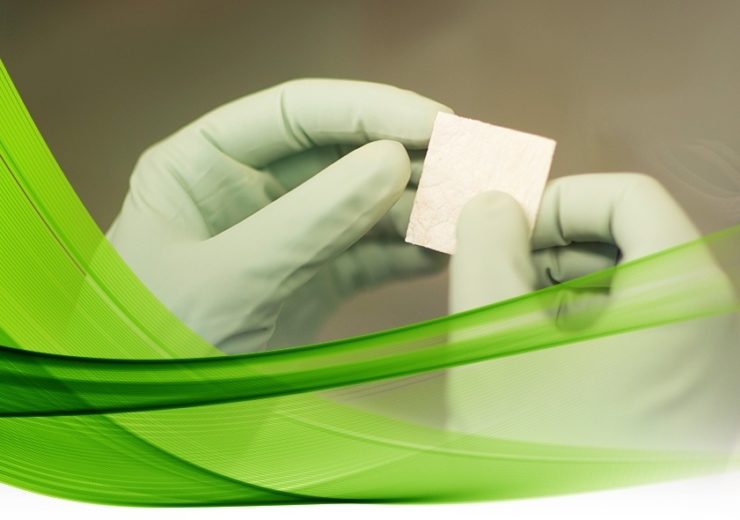Corplex is a dehydrated human umbilical cord tissue allograft designed to be used as a wound covering for acute and chronic wounds

StimLabs has launched a new umbilical cord derived product, Corplex. Credit: StimLabs.
StimLabs, a provider of regenerative technologies and products, has unveiled its new umbilical cord-derived product, Corplex.
The new product is a dehydrated human umbilical cord tissue allograft developed to be employed as a wound covering for acute and chronic wounds.
Corplex is processed utilising the patent-pending Clearify process. It carefully retains both the epithelial layer and the Wharton’s Jelly of the umbilical cord tissue, while efficiently cleaning and terminally sterilising the graft.
StimLabs stated that the proprietary processing approach fully retains vital extracellular matrix components, including collagens, glycosaminoglycans, and proteoglycans.
The conservation of these components offers a robust matrix and protective barrier.
Corplex offers an alternative option for acute and chronic wounds where a thicker, more hydrophilic product is necessary.
Corplex is claimed to be shelf-stable for up to 5 years
Corplex is claimed to be shelf-stable for up to 5 years and provided in 15 mm, 2×2 cm, 2×3 cm, and 3×5 cm sheet sizes.
StimLabs research and development vice president Dr. Sarah Griffiths said: “Since StimLabs’ inception, it’s been our promise to deliver more targeted approaches to influence healing through accessibility, ease of use, and effectiveness, to ultimately improve patient outcomes.
“We’ve worked diligently to ensure these patent-pending processes and products are another step towards that aspiration. We’re excited to continue pushing our product portfolio boundaries to more effectively meet the needs of both patients and providers.”
Corplex plans to launch another umbilical cord derived product this year.
In February 2019, StimLabs had enrolled first patient in a trial designed to assess the safety and efficacy of Revita human placental graft in diabetic foot ulcers (DFUs).
Revita is said to be the first amniotic placental membrane allograft to capture the complete intact membrane in a shelf-stable format.
Established in 2015, StimLabs has introduced a suite of amniotic-derived products and developed a product pipeline across a range of clinical applications.
